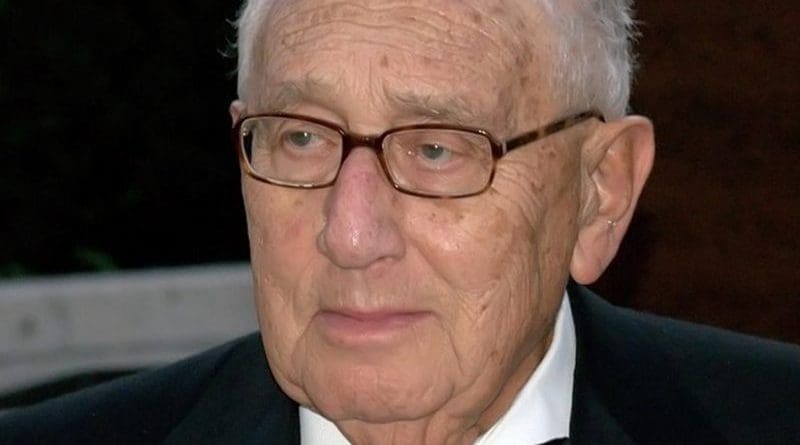Kissinger And The Ping-pong Diplomacy In 21st Century – OpEd
The Chinese government accorded a scant welcome to Kissinger, who has not been in the service of the US government for a long time, in contrast to the two secretaries (of State and Treasury) and one climate envoy. This implies that the Chinese government is extremely dissatisfied with the official diplomacy of the US.
The Chinese are actually indicating that the US is accountable for the strained and even somewhat antagonistic relations between the two countries because it has departed from the active and positive diplomacy of the 1970s, when Henry Kissinger, the initiator of the relations between the two countries, had a pivotal role in US foreign policy. The Chinese authorities are actually attempting to create a new kind of ping-pong diplomacy, which in the seventies, when there were no official relations between the two countries, resulted in secret negotiations to establish ties between them, owing to Kissinger’s initiative.
Xi’s speech revealed the most evident signs of the aspiration to “restart” the relations between the two countries as he called Kissinger an old friend of the Chinese people and said that the relations between China and the US have always been associated with Kissinger’s name. But the question is, how can this centenarian genius help to restore the relations between the two countries? The answer is “informal diplomacy”. This kind of diplomacy refers to informal and non-governmental efforts that create the basis for formal and comprehensive dialogues and provide the necessary platform for this purpose. Kissinger’s relation with informal diplomacy could be the key to solving the issues between China and the US, in the sense that he, as a highly respected and experienced politician, could facilitate dialogue, especially on sensitive or difficult issues, such as Taiwan, where there is a strong distrust between both sides and act as a messenger between the two parties, away from the existing tensions. Also, Kissinger’s deep understanding of the US-China relationship and his experience in international diplomacy can make him a valuable adviser to the current leaders of the US and China, so that they can begin to readjust their relations with a more open vision. On the other hand, Kissinger can use his influence to support a more constructive approach to US-China relations and demonstrate the importance of dialogue as the main tool of diplomacy, in which his personal relations with the Chinese can play a key role. He can also play a central role in addressing common global challenges, such as climate change, the proliferation of nuclear weapons, and epidemics, which seriously require the cooperation of the US and China.
Conversely, informal diplomacy may offer benefits that are not present in formal diplomacy. This type of diplomacy can allow for secret and confidential communication between the US and China, which can certainly be beneficial for discussing sensitive issues that are difficult to address through official channels. Also, this type of diplomacy can reduce the inflexibility in official relations, which is usually created due to the visibility and attention of public opinion, and provide the possibility of potentially more productive discussions. These discussions can be especially useful for finding innovative solutions to complex problems. In addition, as there is a high degree of mistrust in official relations between China and the US, informal communication, especially by people such as Kissinger who are trusted by both parties, helps to build the foundations of renewed trust. In the end, the chances of success of secret and informal talks are very high for the reasons that have been mentioned, and considering the positive history of ping-pong diplomacy and Kissinger’s initiative left in the minds of the Chinese, these kinds of talks are somehow last diplomatic solution available.
However, the Chinese aspiration to initiate informal talks has so far gone unanswered by US officials. Especially since the US State Department characterized Kissinger’s trip as just a personal trip by an ordinary American citizen and not a special envoy. Now it remains to be seen if Kissinger can once again become the restorer of China-US relations and bring the two sides to the negotiating table to talk about essential issues by reducing tensions. Of course, it should also be noted that China’s willingness to restart talks will not last forever, and the US does not have much time to use this temporarily opened window.

